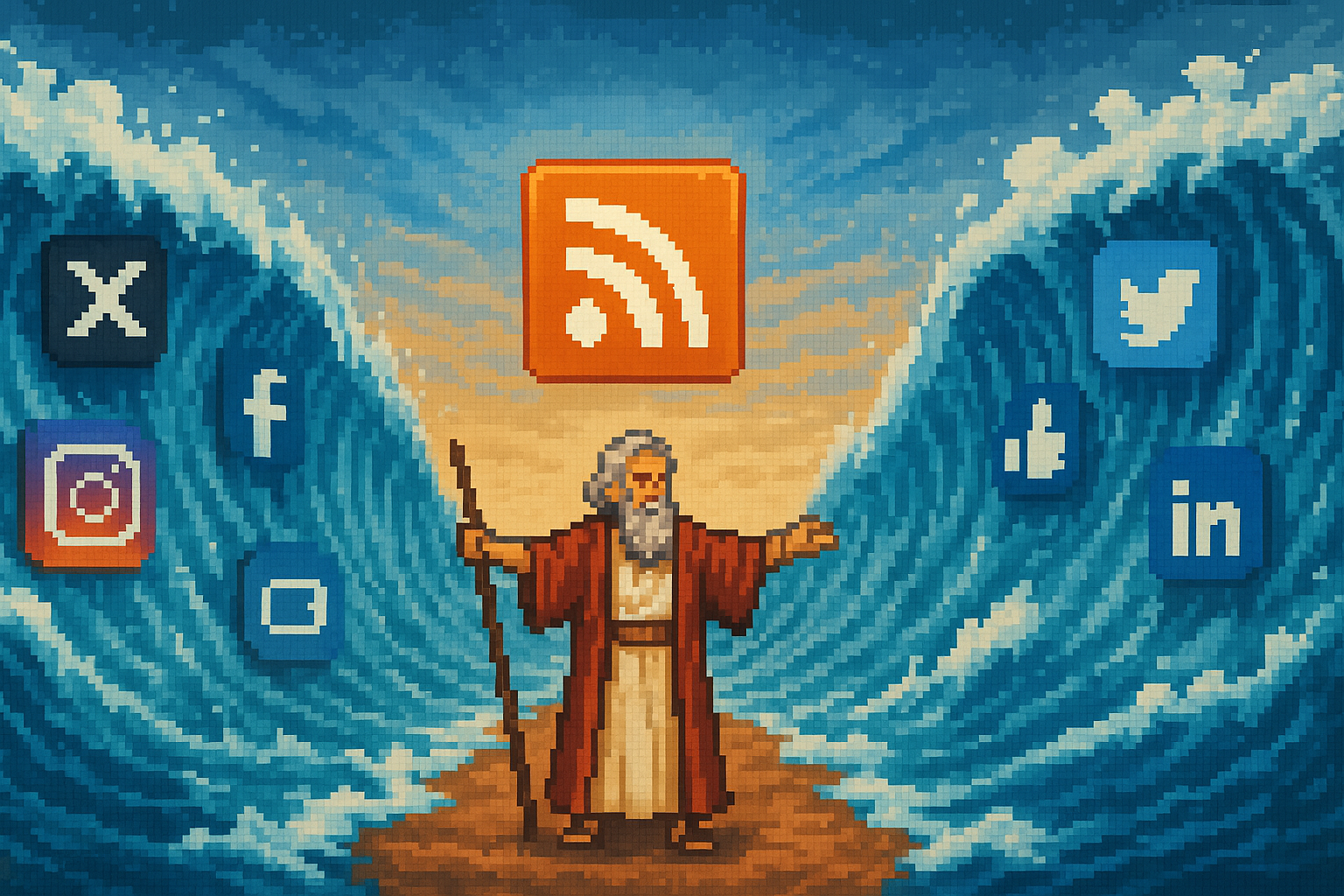I'm Betting on RSS

When I was a teenager, I was hooked on Google Reader. I was obsessed with it. I think I had around 200 blogs subscribed, and it was how I learned about everything. I’d read about very random, but very important things that would later connect the dots—from CSS tricks (Yes, I’ve probably read everything Chris Coyier has written!) to hardware specs. When Google shut it down (12 years ago!!!), I was genuinely devastated. It wasn’t just the loss of a tool; it felt like a core part of my internet experience was ripped out.
That shutdown created a void. In the years that followed, we saw the rise of platforms that tried to centralize content, like Medium. For a while, it seemed like a decent replacement. But then Medium went down the same dead end as Quora, locking content behind a login or a paywall. The open discovery was gone.
Now we’re facing a new problem. With the rise of AI, we’re already seeing a flood of content. Finding good, human-written resources will be like searching for a needle in a haystack. For context, I did use AI for this article—but not for writing, only for editing and correcting grammar mistakes. Oh, and for the cover image, of course!
Tech is a perfect example for this. I’m constantly overwhelmed by the information I see on social networks. It’s a non-stop feed of influencers pushing the next shiny piece of tech. It’s easy to get caught up in what’s being hyped, not what’s genuinely good or useful. This problem of separating the signal from the noise is already hard to tolerate, and it’s about to get much worse!
This is why I can’t rely on social network algorithms anymore. The feeds on X, Meta, and LinkedIn all feel synthetic. They aren’t designed to bring you the best content; they’re designed to keep you scrolling. It doesn’t feel organic.
So, I’m betting on a return to basics. I’m betting on custom blogs (like the one I have), individual writers, and content discovery through people linking to other people’s posts. And the technology that ties this all together is RSS feeds and RSS apps. I believe RSS tools will only get better, eventually gaining AI features that will help with labeling, summarization, and better ways to discover relevant content from the feeds you already trust.
If you are missing Google Reader, I just found out about FreshRSS. I’m running it on a Raspberry Pi through umbrelOS, and it’s the closest I’ve felt to that old experience in a long time.
And one more thing. People ask why Pocket and other “read it later” apps didn’t succeed in the same way. It’s because Google Reader wasn’t just for bookmarking. It was an inbox for the web. You had unread counts, you could fly through articles with keyboard shortcuts, and you could organize everything. It was a tool for power users, No BS.
If you liked this article, don’t forget to subscribe to my RSS feed at https://iraklijani.com/rss.xml (which I just fixed after writing this article 😆).